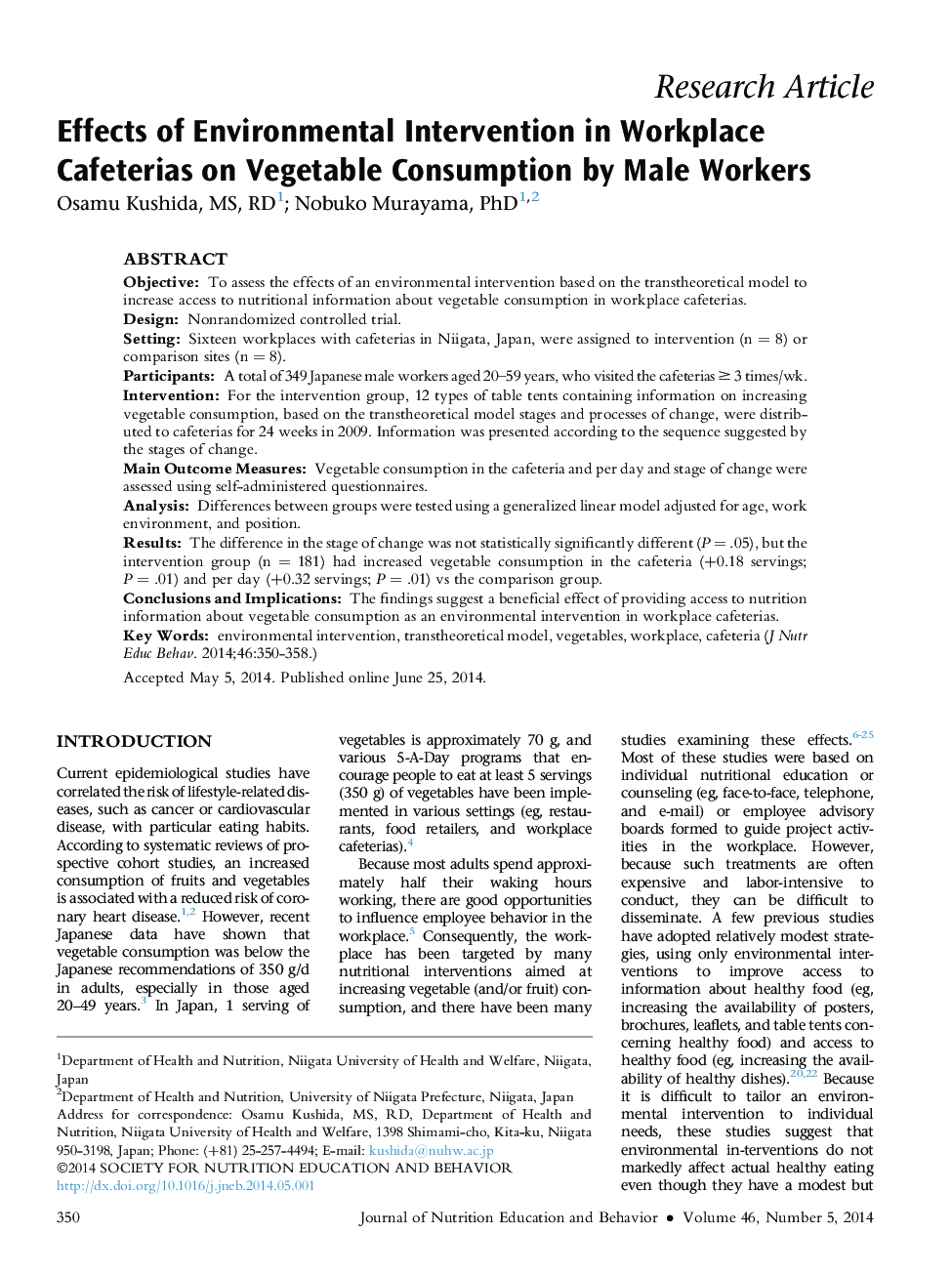| Article ID | Journal | Published Year | Pages | File Type |
|---|---|---|---|---|
| 361240 | Journal of Nutrition Education and Behavior | 2014 | 9 Pages |
ObjectiveTo assess the effects of an environmental intervention based on the transtheoretical model to increase access to nutritional information about vegetable consumption in workplace cafeterias.DesignNonrandomized controlled trial.SettingSixteen workplaces with cafeterias in Niigata, Japan, were assigned to intervention (n = 8) or comparison sites (n = 8).ParticipantsA total of 349 Japanese male workers aged 20–59 years, who visited the cafeterias ≥ 3 times/wk.InterventionFor the intervention group, 12 types of table tents containing information on increasing vegetable consumption, based on the transtheoretical model stages and processes of change, were distributed to cafeterias for 24 weeks in 2009. Information was presented according to the sequence suggested by the stages of change.Main Outcome MeasuresVegetable consumption in the cafeteria and per day and stage of change were assessed using self-administered questionnaires.AnalysisDifferences between groups were tested using a generalized linear model adjusted for age, work environment, and position.ResultsThe difference in the stage of change was not statistically significantly different (P = .05), but the intervention group (n = 181) had increased vegetable consumption in the cafeteria (+0.18 servings; P = .01) and per day (+0.32 servings; P = .01) vs the comparison group.Conclusions and ImplicationsThe findings suggest a beneficial effect of providing access to nutrition information about vegetable consumption as an environmental intervention in workplace cafeterias.
